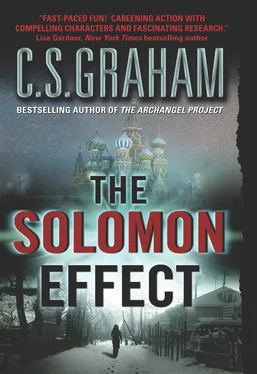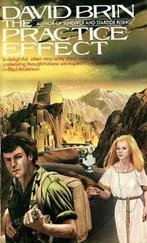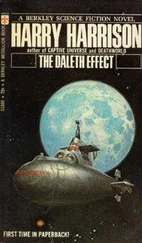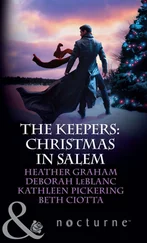“And took whatever it was they wanted from the sub.”
“Which may or may not have been gold.”
“Which probably was not gold.” Jax thumbed back through Baklanov’s cell records and sucked in a hissing breath.
“What is it?” she said.
He pointed to the last two entries on the list. “Look at this. Someone accessed Baklanov’s voice mail on Sunday morning, then again this afternoon.”
“I don’t get it. Baklanov was killed early Saturday morning. How is that possible?”
“Easy. You kill a man. You take his cell phone. And then you check his cell records to see who he’s been calling.”
“And who is calling him.” Tobie watched the woman in the headscarf swing her son up to her shoulder and pat him softly on the back. “I think Mr. Kemal Erkan might be in trouble,” she said.
“No shit.”
Kaliningrad Oblast, Russia: Tuesday 27 October
7:30 A.M. local time
Early the next morning, Stefan was crouched down on his hands and knees, digging for carrots in an overgrown field near the half-collapsed barn where he’d spent the night, when the dog came to him.
Black and tan, with floppy ears and a waggy tail, it looked like some kind of a shepherd mix, half grown and skinny. Panting hopefully, it leaned against Stefan’s legs and looked up at him with softly pleading brown eyes.
“Go away,” said Stefan, throwing a frightened glance about. “Go home.”
But all the villages and farms around here were deserted, inhabited only by storks and ghosts. The dog whined, its head dipping.
Stefan reached out a tentative hand to scratch behind the pup’s ears. It flopped down beside him, its tongue flicking out to lick his wrist.
He ran his hands down the dog’s bony sides and flanks. “What’s the matter, boy? Hmm? You lost? Or don’t you have a home at all?”
The dog whined again.
Stefan stared down at his small pile of hard-won carrots. He hesitated, then broke one into quarters and held it out in the palm of his hand. “You hungry?”
After Sunday night’s disaster near Ayvazovskaya, Stefan had vowed once again to avoid all villages and towns. But the dog didn’t seem to care for carrots, and it kept whining. After two hours of walking, the pup was lagging, its head drooping. Drawing up at the top of a low rise, Stefan hunkered down to loop an arm over the pup’s shoulder as he eyed the town below.
It was a cheerless place, its ugly concrete houses dating back to the Soviet era. Built on the edge of a stretch of marshland, the town’s only reason for existence seemed to be the railroad tracks that ran on an elevated embankment along the edge of town. Stefan could see a freight train coming in the distance, the dirty brown smear from its diesel engine stretching out across the marsh.
He brought his gaze back to the town center, where a line of shops fronted a small rubbish-strewn square with the inevitable statue of Lenin at its center. He wasn’t going to try stealing again-he’d learned his lesson. But surely ten rubles would be enough to buy the dog some scraps from a butcher?
Trying desperately not to attract anyone’s attention, Stefan walked down the hill to the town’s desolate windblown main street, one hand clutching his lucky amber horse head, the dog limping at his heels. They had almost reached the looming statue of Lenin when he glanced up and saw a big black Durango parked at the edge of the dusty square.
Stefan’s mother had a saying: Honest men drive Russian cars. In Kaliningrad, only New Russians, thieves, and whores drove Durangos and Mercedes.
Dropping his hand to the dog’s neck, Stefan swerved sideways into a narrow rutted lane choked with weeds and broken clumps of concrete. Flattening himself behind an old garage, he listened to the buzzing of insects in the grass, smelled the drift of cooking onions from a nearby house, and tried to stop trembling. Beside him, the dog whined. Stefan whispered, “Shhh!”
It was a full minute before he summoned the courage to peek around the corner of the garage. Two men in turtleneck sweaters and dark trousers were working their way down the row of shops on the far side of the square. They had something in their hands-a piece of paper? a picture?-that they kept showing to everyone they came to. The townspeople would look at the paper for a moment, then shake their heads. Stefan could imagine them saying, This boy? No, I haven’t seen this boy. What has he done?
Then one of the men turned, and Stefan recognized the big Chechen with red hair and a ruddy complexion who’d shot Uncle Jasha. With a gasp, Stefan drew back his head, his heart pounding so hard his chest hurt.
“We’ll find another village with a butcher,” he told the dog, turning. “Come on.”
The dog gave a low woof and darted out into the square.
“No! What are you doing?”
Sniffing the Durango’s tires, the pup swung around and calmly lifted its leg.
Stefan’s gaze flew to the men across the square, but both were turned away. He brought his gaze back to the SUV.
Against such men and their guns, Stefan knew, he could do nothing. But that didn’t mean he was helpless.
The dog came bounding back, its tail wagging proudly. Stefan closed one hand convulsively around the lucky amber in his pocket, then reached out and touched the dog’s shoulder. “You stay.”
The dog sat down and cocked its head.
“Good dog. Stay.”
The dog lay down, its head on its paws.
Hunkering low, Stefan sprinted across the alley to crouch behind the Durango’s big fender. Over the broad, shiny expanse of the car’s black hood he could see the men on the far edge of the square, still busy working the shops. Jerking his penknife from his pocket, he dropped to his back and wiggled underneath the SUV.
The familiar, pungent scent of hot oil from the Durango’s engine engulfed him. Stefan had grown up working with his dad on truck engines; it took him only a moment to locate the Durango’s brake line. Breathing a small prayer of thankfulness that the line wasn’t made of metal, he started hacking at the rubber.
He could feel the sharp stones of the roadway digging into his back and rump as he sawed the small blade back and forth. His arms began to ache from the effort of working over his head in the cramped space, but he kept cutting, desperately aware of the passage of time.
The blast of a train’s whistle, sounding unexpectedly close, distracted him. He jerked his head out of the way just as the line finally broke, sending a stream of brake fluid squirting out into the dirty road. He was tempted to leave it at that, to run while he had the chance. But a cut brake line could be quickly dealt with; a missing section of line was a lot harder to fix. Biting his lip, he started a second cut some six inches from the first.
Glancing over his shoulder, he realized the men were now standing together at the corner, talking. Just as the big redheaded Chechen stepped off the curb to cross the square, the section of hose came loose in Stefan’s hand.
Scooting out from beneath the Durango, he pushed to his feet…and heard a shout go up across the square.
“Mother of God,” gasped Stefan.
He pelted down the alleyway, the black-and-tan dog leaping up and yelping with joy at the sight of him. “Come on, boy!” he shouted. “Run.”
“Get the car!” the Chechen yelled. “Cut him off at the street.”
The dog bounding at his heels, Stefan ran down a rutted weed-grown lane hemmed in by high fences of vertical weathered boards. He could hear the pounding of running feet behind him, the loud gunning of the Durango’s engine in the square. He risked a quick glance over his shoulder and saw the big Chechen, red-faced and gaining on him fast. Then the driver of the Durango floored the gas, and Stefan heard a horrendous tearing crash.
Читать дальше











